Published: January 14, 2022
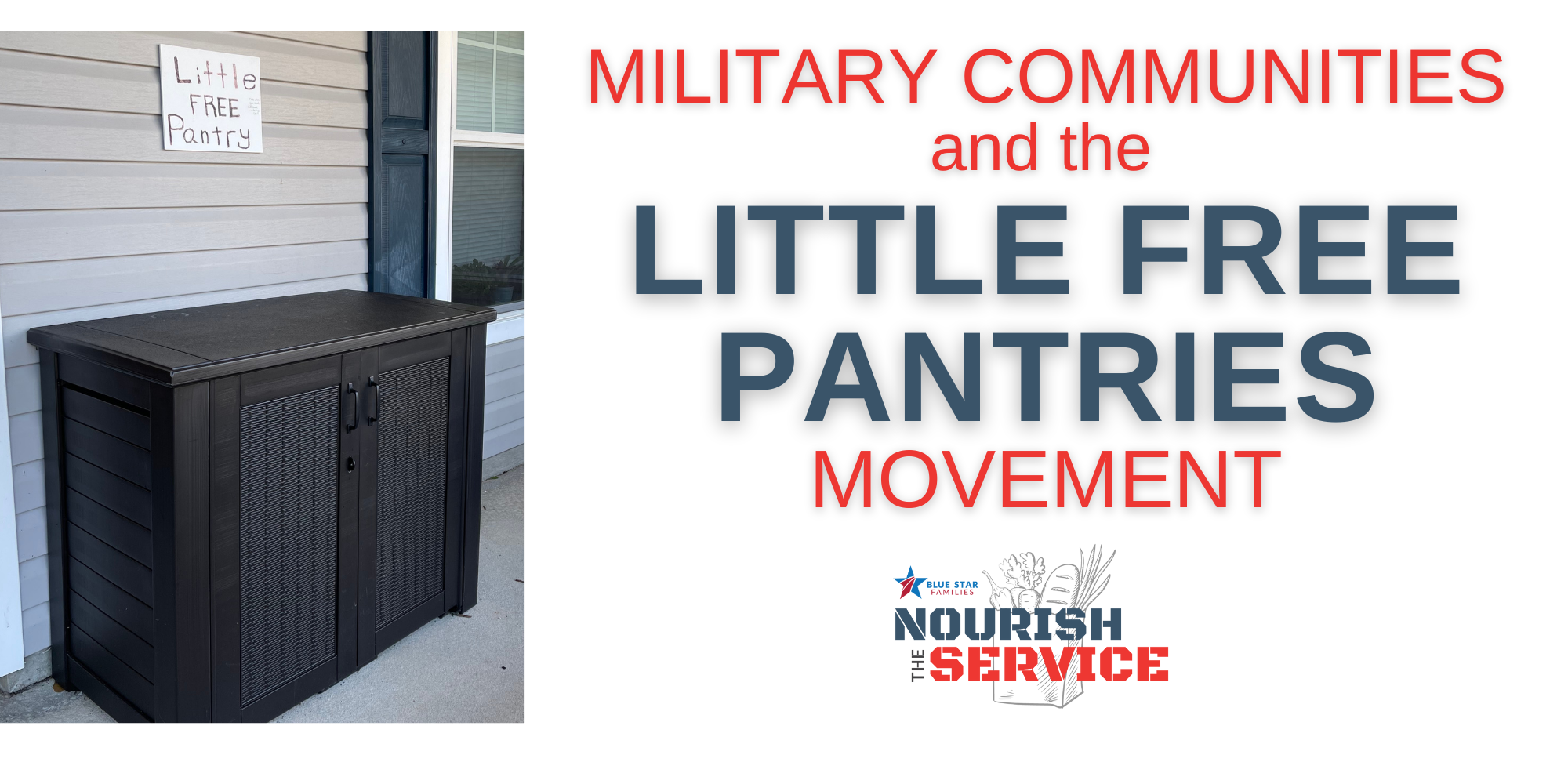
Military Communities and the Little Free Pantries Movement
“The greatness of a community is most accurately measured by the compassionate actions of its members.”
– Coretta Scott King
Honoring the legacy of Coretta Scott King’s late husband, Dr. Martin Luther King Jr., with volunteerism and the forging of strong communities is an everyday goal of Blue Star Families.
One such connection and act of service is participation in the Little Free Pantries movement, a grassroots, crowdsourced solution for neighbors to meet local hunger needs. Nourishing our neighbors is an especially important yet tricky endeavor for the military-connected community. According to Blue Star Families’ 2020 Military Family Lifestyle Survey, as many as 14% of enlisted active-duty families reported low or very low food security. The survey also found that food insecurity is not just a junior enlisted problem; higher ranks experience low or very low food security as well.
Unfortunately, military families facing food insecurity may also be navigating feelings of shame, embarrassment, and fear. That’s why Little Free Pantries prove to be so impactful, offering families in need the opportunity to get the food they need quickly and discreetly while keeping their dignity intact.
Meet two military families who’ve built and stocked Little Free Pantries in their neighborhood!
Elizabeth, Robins Air Force Base, GA
Active-duty Air Force spouse Elizabeth and her husband Nathan have frequently used Little Free Libraries for their homeschooled children. That positive experience, coupled with coming across a call for help from a military spouse asking for diapers on Facebook, inspired Elizabeth to open a Little Free Pantry right on her front porch in August 2021 after they moved to Robins Air Force Base.
“I wish there was somewhere she could go and just grab those diapers and not have to make it public,” Elizabeth recalled. “That must have been embarrassing to have to do that. People don’t have to wait in line at a food pantry. They don’t have to fill out paperwork, it’s just casual and grass roots. People can walk up and utilize it [the Little Free Pantry].”
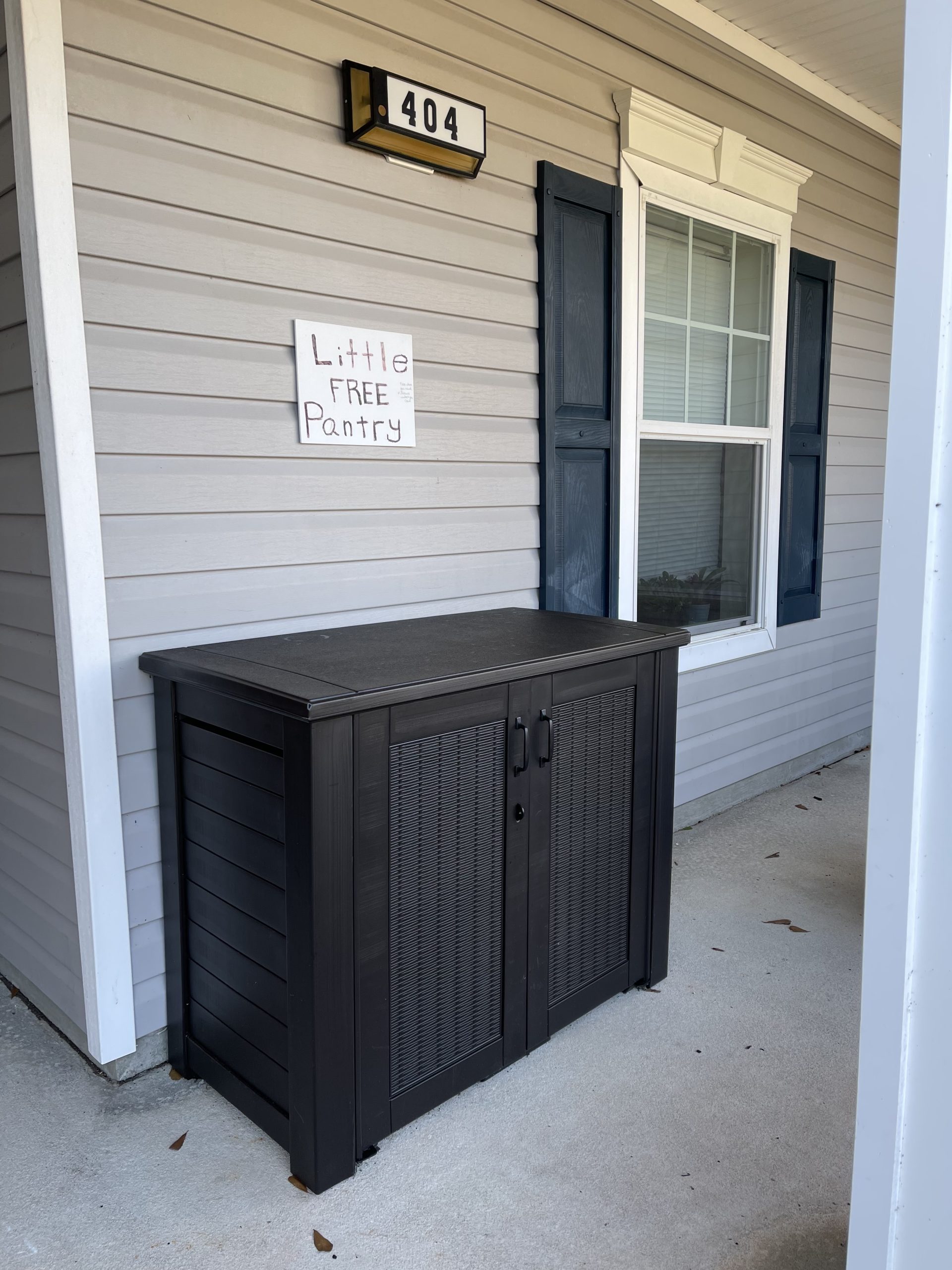
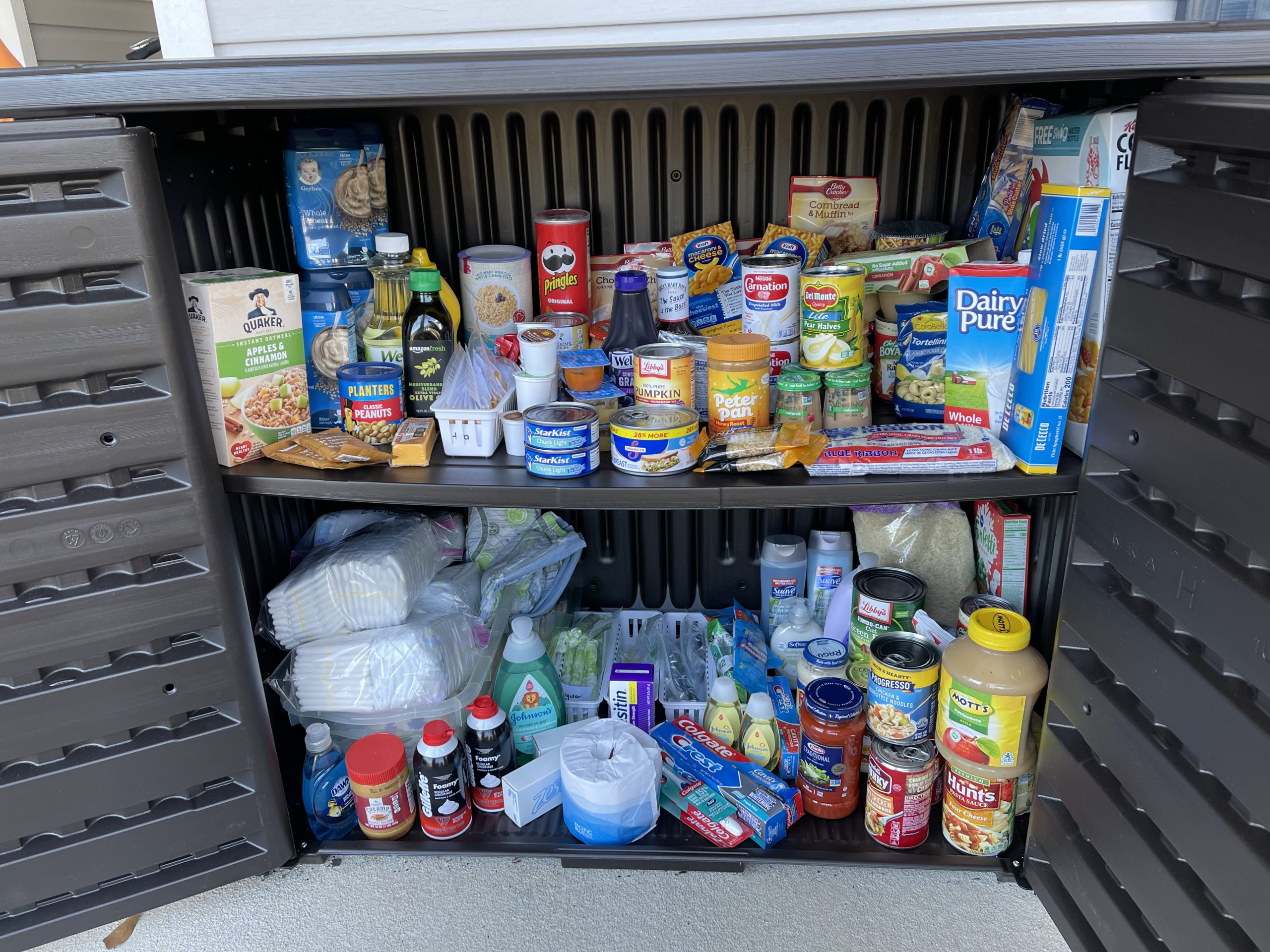
Little Free Pantry at Robins Air Force Base
(Photo provided by Elizabeth)
While Elizabeth and her family stock the bulk of the items in the pantry, neighbors will also walk over to hand-deliver necessities. It’s the kind of foot traffic that helps maintain people’s dignity who use the pantry as no one knows who’s there to give and who’s there to receive–even when discreetly stopping by in the early morning hours.
Regardless of how many people contribute or when the pantry is utilized, Elizabeth feels a sense of satisfaction that people are using it, especially children. By supplying easy-to-grab items, children can pick up granola bars, packets of oatmeal, or canned ravioli they can make themselves.
“That’s just the tip of the iceberg,” Elizabeth said. “I always try to put this in Facebook posts and say, ‘If you need anything else, I’m here. You can knock, and if you need anything – gas, money, whatever – I’m here.’ […] we can figure something out.”
Siuleisle, Fort Drum, NY
Siuleisle, an active-duty Army spouse stationed at Fort Drum, started an on-installation food pantry three years ago, which she runs out of her garage. What began with just a small bin on her porch with extra grocery items for others who needed it is now one of the only pantries with a working freezer and refrigerator for cold items.
“There’s no need to be embarrassed about it – we all fall on hard times,” Siuleisle shared. “Our first year in the military was very, very difficult. Everyone has the stigma where the military gets paid so much, and that’s definitely not how it is. Most of us are living paycheck to paycheck.”
Upon creating the pantry, more and more people began volunteering and providing items. It truly became a community effort. At this point, Siuleisle’s “Blessing Box” gets used daily, sometimes by two to three families per day. She attributes her on-base location as a reason it gets so much use; however, it’s more than that.
“I have a thing with the community where I’ve built trust with everyone that if they really need something, whether it’s baby formula, diapers – if I have it at any time, it can be 1 in the morning and I will make sure I get that outside for them to pick up,” Siuleisle said. “I think it’s being honest with them. If you’ve struggled, you have to share that experience with them so they can sympathize and they can be like, ‘Okay, I don’t have to worry about being judged.’ Because that’s what everyone’s biggest fear is, being judged, because they can be higher ranking and they can fall on hard times and they’re scared to come to someone and ask for that help or ask for resources. And that’s what I try to stress is, ‘Hey, I’ve been in your shoes and I still sometimes am.’”
Now that she has the attention and support of her community, Siuleisle shares that one of her most-utilized food items is kids’ snacks. She also includes rice, beans, easy meals, and microwaveable meals for single soldiers. Local grocers, like Aldi, have even chipped in after a manager heard about her efforts.
Of course, as a military family, there will come a time for them to move and make an impact on yet another community. But Siuleisle is committed, and she’s made her pantry a family affair.
“We definitely want to keep it going because it’s something that is very important here and has become very important to me and my family,” Siuleisle said. “My family is very involved, my two children are involved. […] so it’s something that we definitely want to keep going.”
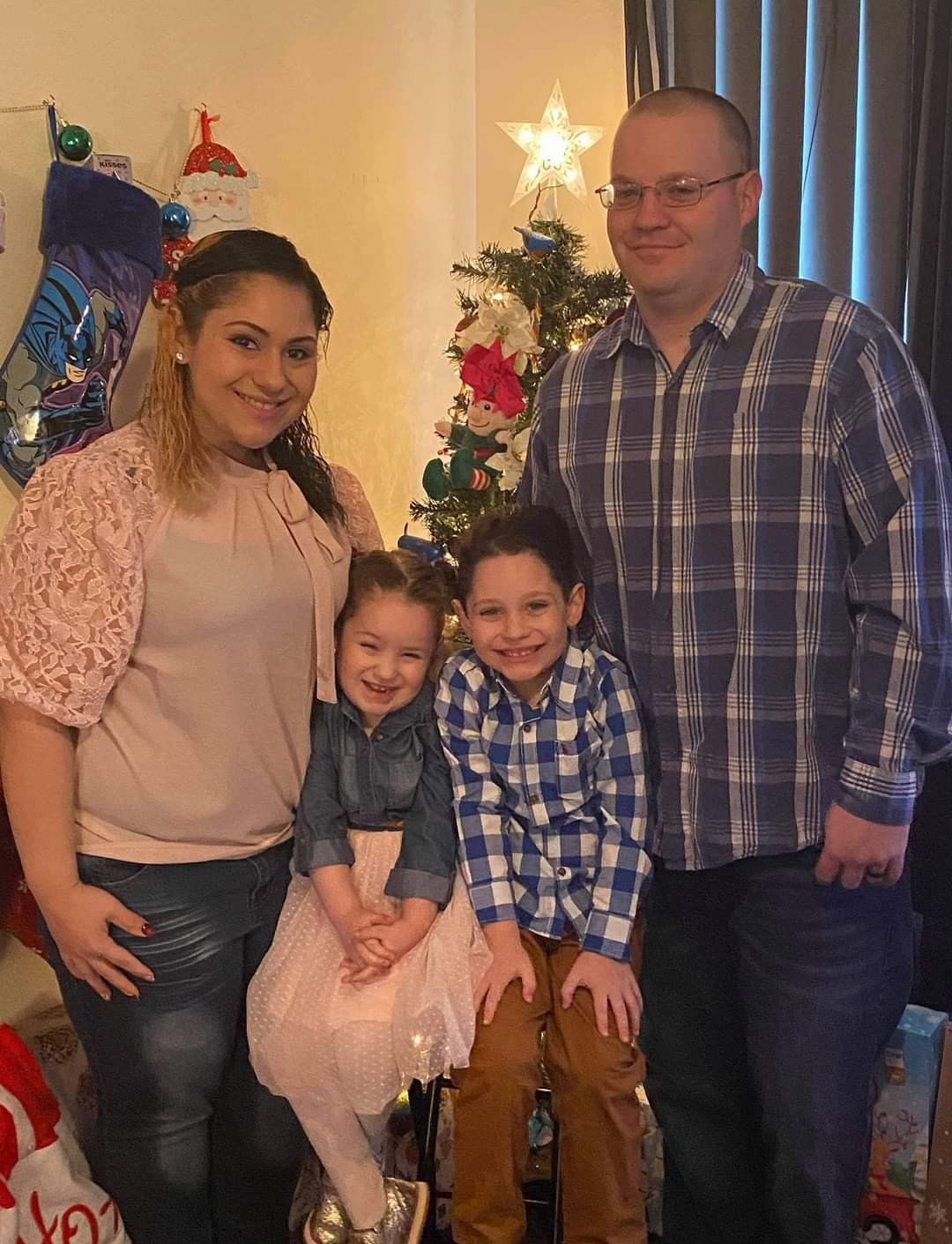
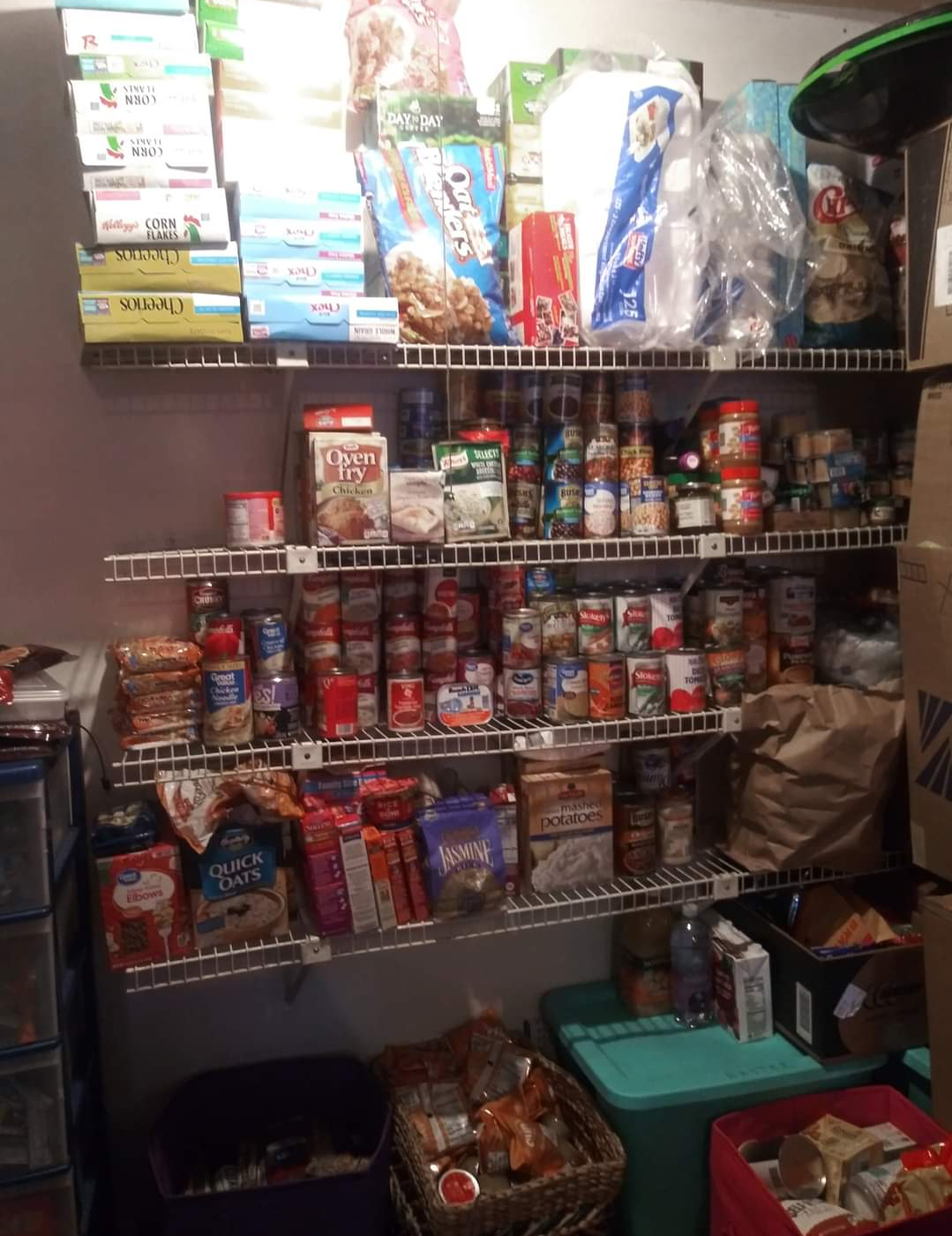
Siuleisle’s family (left) and the Blessing Box (right)
Photos provided by Siuleisle
Thank you, Elizabeth and Siuleisle, for answering the call to “Nourish the Service” in your community!
Ready to show support for those facing food insecurity in your neighborhood?
Here are a couple of ideas to consider when donating items to your local food pantry:
- Include items that nourish people who have food sensitivities. Not sure where to start? Check out this podcast with recommended foods to donate.
- Think about the extra ingredients that will be needed to prepare a dish. Macaroni and cheese with powdered mix needs butter and milk, which the recipient may not have.
- Donate items that aren’t typically included, like spices, cleaning supplies, pet food, or feminine hygiene products.
- Try to include as many canned items with easy-open tops as possible. Consider including can openers.
- Donate your time! Food pantries need volunteers to help keep their operations running.
- Group items together that can make a complete meal. See the graphic below for meal kit ideas.
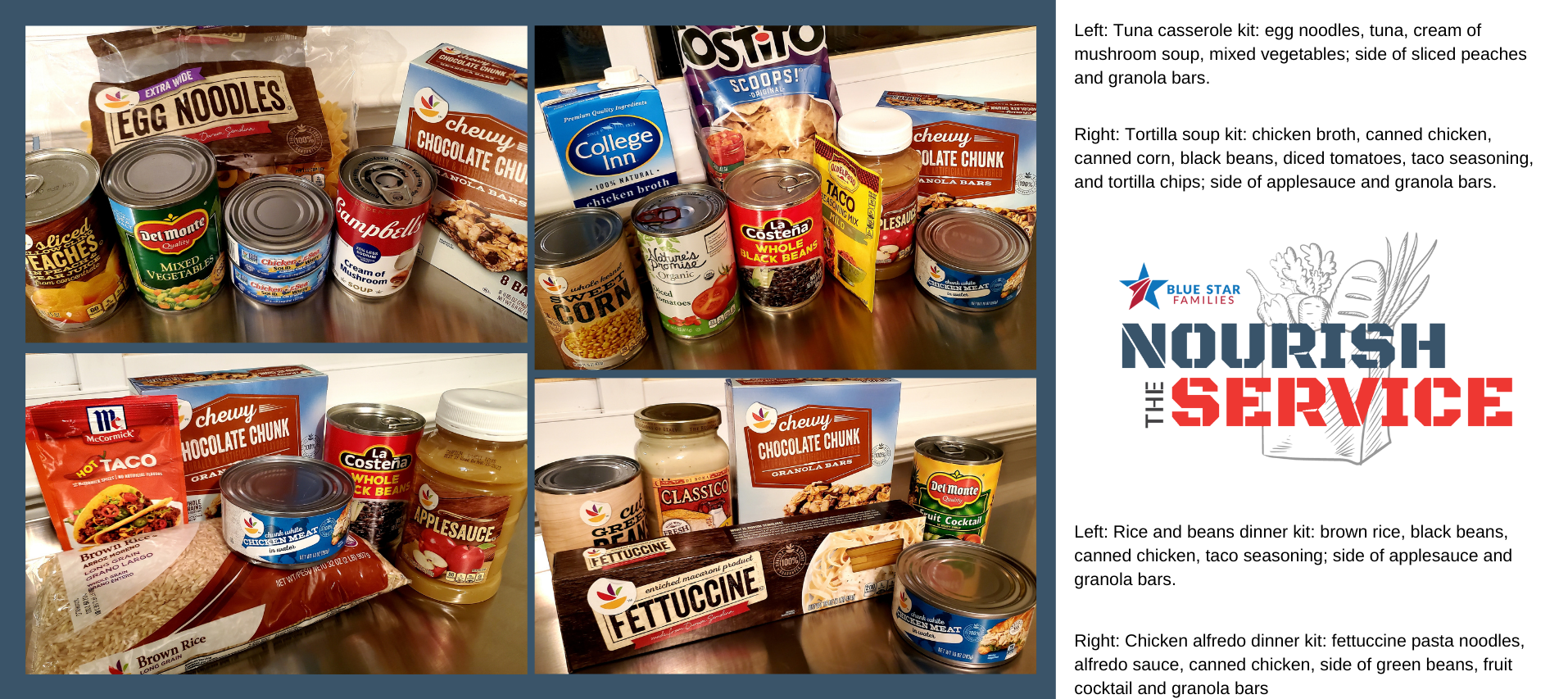
If you’re feeling inspired to create or stock a Little Free Pantry in your neighborhood, search for your zip code at Little Free Pantry today.
Thank you to Amazon and Craig Newmark Philanthropies for sponsoring Blue Star Families’ Food Insecurity DEPLOY Fellowship!
Posted In: Food Insecurity
